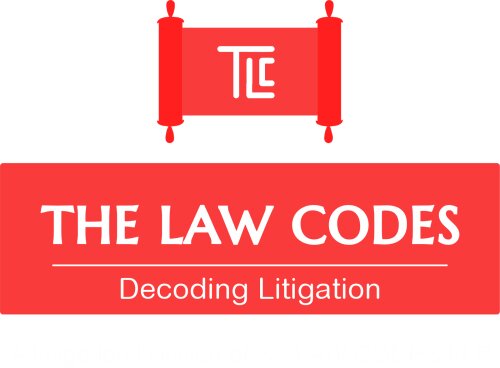Best Antitrust Litigation Lawyers in Chandigarh
Share your needs with us, get contacted by law firms.
Free. Takes 2 min.
List of the best lawyers in Chandigarh, India
About Antitrust Litigation Law in Chandigarh, India
Antitrust litigation refers to legal actions taken to address violations of competition laws, which are designed to promote fair competition and prevent monopolistic practices in the market. In Chandigarh, as in the rest of India, antitrust law is primarily governed by the Competition Act, 2002. The city is a significant commercial hub in northern India, and understanding antitrust litigation is vital for businesses, professionals, and consumers affected by unfair trade practices or abuse of dominant market positions.
The primary objective of antitrust litigation is to maintain a level playing field within the marketplace, preventing practices such as price-fixing, bid-rigging, abuse of dominance, and anti-competitive agreements. These laws aim to protect consumer interests, ensure freedom of trade, and enhance economic efficiency.
Why You May Need a Lawyer
There are several situations where professional legal help becomes necessary in antitrust litigation:
- If your business is accused of engaging in anti-competitive behavior such as forming cartels, price manipulation, or market sharing.
- If you are a consumer or a competitor who suspects that a dominant player is abusing its position to the detriment of fair competition.
- In cases where mergers, acquisitions, or joint ventures might potentially reduce competition in the local market.
- If you receive notices or investigations by the Competition Commission of India (CCI) requiring compliance or defense in antitrust matters.
- If you seek legal guidance on structuring business agreements in a way that complies with competition law.
- If you wish to file a complaint or respond to allegations before the CCI or appellate tribunals.
Local Laws Overview
Antitrust litigation in Chandigarh falls under the national framework set by the Competition Act, 2002. Below are key aspects relevant to residents and businesses in Chandigarh:
- Role of the Competition Commission of India (CCI): The CCI is the primary body that investigates and adjudicates cases of anti-competitive conduct and abuse of dominant market positions.
- Abuse of Dominance and Anti-Competitive Agreements: Practices that limit competition, such as price-fixing, production control, and market allocation, are prohibited.
- Mergers and Acquisitions: Combinations that may cause appreciable adverse effect on competition require CCI approval.
- Appeals: Decisions of the CCI can be appealed to the National Company Law Appellate Tribunal (NCLAT), and further to the Supreme Court of India if needed.
- Penalties: Non-compliance can result in heavy penalties, including fines up to ten percent of the enterprise’s turnover, and in some cases, criminal prosecution.
- Regional Implementation: While laws are national, matters are often heard at local benches, with Chandigarh being important for northern states. Chandigarh is also home to various sectoral regulators and legal forums capable of handling initial inquiries or disputes related to competition law.
Frequently Asked Questions
What is antitrust litigation?
Antitrust litigation involves legal proceedings relating to violations of competition and anti-monopoly laws, typically involving issues like cartels, abuse of market dominance, or anti-competitive agreements.
Which authority oversees competition law in Chandigarh, India?
The Competition Commission of India, based in New Delhi, oversees and enforces competition laws throughout India, including in Chandigarh.
What acts are considered anti-competitive under the law?
Actions such as forming cartels, price-fixing, bid-rigging, division of markets, and abuse of dominant business positions are typically deemed anti-competitive.
Can an individual file a complaint under competition law?
Yes, any individual, consumer, trade association, or business entity can file a complaint with the CCI regarding anti-competitive practices.
What penalties can be imposed for violating antitrust laws?
Penalties can include substantial fines, directives to cease and desist certain practices, cancellation of agreements, and in severe cases, imprisonment of responsible individuals.
How are antitrust cases typically resolved?
Cases are investigated by the CCI, and after hearings, the Commission passes an order that may include penalties, corrective measures, or dismissal of charges. Appeals can be made to higher tribunals or courts.
Are there time limits for filing antitrust complaints?
While the Competition Act does not specify strict limitation periods, undue delay in filing a case can affect proceedings. Prompt filing of complaints is advised.
Does the Competition Act apply to all businesses in Chandigarh?
Yes, the Competition Act applies to all individuals, companies, partnerships, and government bodies engaged in economic activities within Chandigarh and across India.
Do I need a lawyer to file a complaint with the CCI?
While individuals can file complaints themselves, it is highly recommended to consult an antitrust lawyer to ensure the complaint is properly drafted and supported.
What should I do if I receive a notice from the CCI?
Seek immediate legal counsel to understand the notice's implications, prepare your response, gather relevant documentation, and comply with the investigation process.
Additional Resources
Here are some helpful resources and organizations for those seeking more information or assistance with antitrust litigation in Chandigarh, India:
- Competition Commission of India (CCI): The principal regulatory body for antitrust matters in India. It provides guidance, processes complaints, and conducts investigations.
- Advocates practicing at Punjab and Haryana High Court: Many legal professionals in Chandigarh are experienced in competition and antitrust law cases.
- Chandigarh Legal Services Authority (CLSA): Offers free legal aid and services for eligible persons including preliminary advice on competition law matters.
- National Company Law Appellate Tribunal (NCLAT): Handles appeals from CCI decisions and offers information on appellate procedures.
- Confederation of Indian Industry (CII), Chandigarh Chapter: Provides seminars, workshops, and resources on compliance with competition laws.
Next Steps
If you believe you are involved in or affected by anti-competitive practices in Chandigarh, consider the following steps:
- Gather all relevant documents, evidence, or correspondence related to the issue in question.
- Consult with a qualified antitrust or competition law lawyer in Chandigarh who is familiar with both local and national competition law procedures.
- Discuss your case details fully and understand all possible outcomes and remedies before proceeding.
- If advised, prepare and file a formal complaint with the Competition Commission of India using the correct procedures and supporting documentation.
- Stay proactive in following up with your legal counsel throughout the investigation and litigation process.
- If you receive a notice or summons, seek immediate legal advice to ensure timely and adequate response.
- Participate in workshops or seminars organized by business chambers or legal societies to stay updated with the latest developments in antitrust law.
Taking timely legal action and consulting with professionals can help protect your rights and ensure fair competition in the marketplace.
Lawzana helps you find the best lawyers and law firms in Chandigarh through a curated and pre-screened list of qualified legal professionals. Our platform offers rankings and detailed profiles of attorneys and law firms, allowing you to compare based on practice areas, including Antitrust Litigation, experience, and client feedback.
Each profile includes a description of the firm's areas of practice, client reviews, team members and partners, year of establishment, spoken languages, office locations, contact information, social media presence, and any published articles or resources. Most firms on our platform speak English and are experienced in both local and international legal matters.
Get a quote from top-rated law firms in Chandigarh, India — quickly, securely, and without unnecessary hassle.
Disclaimer:
The information provided on this page is for general informational purposes only and does not constitute legal advice. While we strive to ensure the accuracy and relevance of the content, legal information may change over time, and interpretations of the law can vary. You should always consult with a qualified legal professional for advice specific to your situation.
We disclaim all liability for actions taken or not taken based on the content of this page. If you believe any information is incorrect or outdated, please contact us, and we will review and update it where appropriate.
















